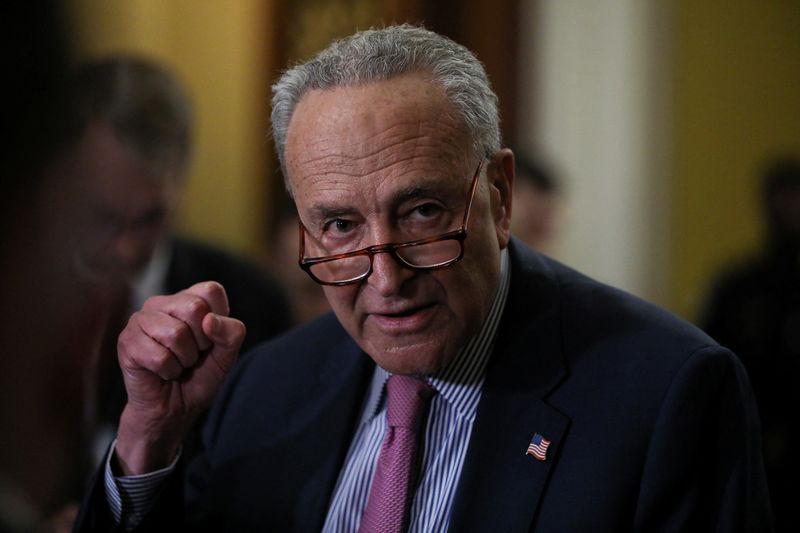By Richard Cowan and David Morgan
WASHINGTON (Reuters) -Top U.S. Senate Democrat Chuck Schumer on Thursday said he was taking the first procedural step toward passing a stopgap funding bill to avert a partial government shutdown starting late next week, as House Republicans again found themselves in the midst of a possible revolt over spending.
Schumer's move came as Republican House of Representatives Speaker Mike Johnson faced opposition from within his own narrow majority to a deal reached with Schumer on a $1.59 trillion top-line spending number for government agencies in the fiscal year that began Oct. 1.
Johnson on Thursday held private meetings with some of the hardline Republicans who have been pushing for deeper spending cuts.
"I've made no commitment. So if you hear otherwise, it's just simply not true," Johnson said in response to questions over whether he was going to renegotiate his agreement with Schumer.
Republican Representative Scott Perry, a senior member of the hardline House Freedom Caucus, earlier told reporters that Johnson is open to revisions, with lawmakers working on language.
"Sure he is. Why wouldn’t he be?” Perry said, before acknowledging that Johnson had not given the rebel Republicans any commitment.
Schumer said the Senate can could begin voting on it when it returns on Tuesday from a Martin Luther King Jr. holiday recess. Little time remains before funding runs out on Jan. 19 for some sprawling federal agencies, including the departments of Agriculture and Transportation.
He did not say now long the stopgap bill would be in effect.
The U.S. came close to a partial government shutdown last fall, amid opposition by the hardline House Republicans who ousted Johnson's predecessor, Kevin McCarthy, over reaching a bipartisan stopgap spending deal with Schumer.

"There are those on the hard right over in the House who think they can bully their colleagues and the House and the country into a shutdown," Schumer said.
Johnson will try to restart his party’s legislative machinery on Thursday, a day after a dozen hardline Republicans shut down the chamber's legislative business to protest the bipartisan spending deal.